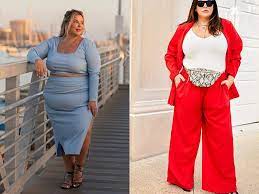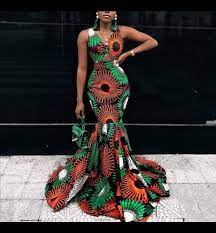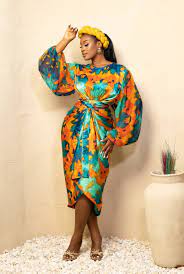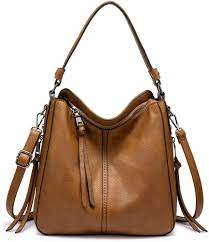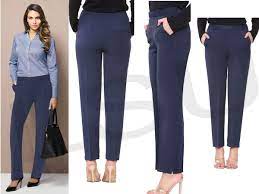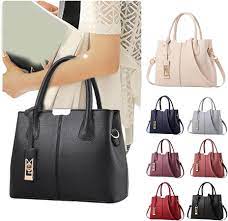Empowering Style: Plus Size Women’s Clothing Redefined
Plus Size Women’s Clothing: Embracing Fashion for All
For too long, the fashion industry has been criticised for its lack of inclusivity when it comes to sizing. However, in recent years, there has been a positive shift towards embracing diversity and catering to women of all shapes and sizes. Plus size women’s clothing is no longer an afterthought but a thriving market that celebrates the beauty and individuality of every woman.
Gone are the days when plus size clothing was limited to unflattering styles and outdated designs. Today, there is a wide range of trendy and stylish options available for plus size women, from chic dresses to comfortable activewear. Designers and retailers are recognising the importance of offering inclusive sizing that not only fits well but also makes women feel confident and empowered.
Plus size fashion is not about hiding or disguising one’s body but about embracing it with pride. It’s about wearing clothes that reflect personal style and preferences, regardless of size. Whether it’s a bold print dress, a tailored blazer, or a cosy knit jumper, every woman deserves to have access to clothing that makes her look and feel amazing.
Shopping for plus size women’s clothing should be an enjoyable experience, free from judgment or limitations. With more brands expanding their size ranges and promoting body positivity, plus size women now have more options than ever before. The message is clear: fashion is for everyone, regardless of size.
So let’s celebrate the diversity of women’s bodies and embrace the beauty of all shapes and sizes. Plus size women’s clothing is not just about fashion; it’s about acceptance, empowerment, and self-love. Together, let’s continue to push boundaries, challenge stereotypes, and redefine what it means to be stylish in every sense of the word.
Empowering Your Wardrobe: A Guide to Plus Size Women’s Fashion FAQs
- What size range is considered plus size in women’s clothing?
- Where can I find trendy and fashionable plus size clothing?
- How can I determine my correct size when shopping for plus size women’s clothing?
- Are there specific styles that are more flattering for plus size women?
- Do major fashion brands offer a diverse range of sizes, including plus sizes?
- What are some tips for styling outfits to flatter a plus size figure?
- Are there dedicated online retailers that specialise in selling exclusively plus size women’s clothing?
- How can I promote body positivity and inclusivity in the fashion industry as a consumer of plus size clothing?
What size range is considered plus size in women’s clothing?
In women’s clothing, the size range considered plus size typically starts at UK size 18 and above. However, it’s important to note that sizing standards can vary between brands and regions, making it essential for individuals to focus on how clothing fits and feels rather than getting fixated on a specific number. Embracing inclusivity and diversity in fashion means recognising that beauty comes in all sizes, and every woman deserves to feel confident and stylish, regardless of the label on her clothes.
Where can I find trendy and fashionable plus size clothing?
When it comes to finding trendy and fashionable plus size clothing, there are now more options than ever before. Many online retailers specialise in offering a wide range of stylish plus size garments, from chic dresses to comfortable activewear. Popular fashion brands have also expanded their size ranges to cater to the needs of plus size women, ensuring that they have access to the latest trends and designs. Additionally, dedicated plus size fashion stores and boutiques provide a curated selection of on-trend clothing specifically tailored for larger sizes. Whether shopping online or in-store, the key is to look for brands that prioritise inclusive sizing and celebrate the beauty of all body shapes.
How can I determine my correct size when shopping for plus size women’s clothing?
When shopping for plus size women’s clothing, determining your correct size is crucial to finding pieces that fit well and make you feel confident. To find your perfect fit, start by taking accurate measurements of your bust, waist, and hips using a measuring tape. Compare these measurements to the size charts provided by the brand or retailer you’re shopping from, as sizing can vary between different brands. Additionally, consider trying on different sizes to see how they feel on your body – remember that comfort is key. Don’t be afraid to seek assistance from store staff or customer service for guidance on sizing if you’re unsure. By taking these steps and being mindful of your body’s unique shape and proportions, you can navigate the world of plus size women’s clothing with ease and style.
Are there specific styles that are more flattering for plus size women?
When it comes to dressing in plus size women’s clothing, there are indeed certain styles that can be particularly flattering and accentuate one’s curves beautifully. A-line dresses and skirts are a popular choice as they create a flattering silhouette by skimming over the hips and accentuating the waist. Wrap dresses are also highly recommended for their ability to define the waist and create an hourglass shape. V-neck tops and dresses can elongate the neckline and draw attention upwards, while high-waisted trousers or skirts can help create a balanced look. Ultimately, the key to finding flattering styles lies in embracing personal preferences and experimenting with different cuts and designs to discover what makes you feel confident and fabulous.
Do major fashion brands offer a diverse range of sizes, including plus sizes?
In response to the frequently asked question of whether major fashion brands offer a diverse range of sizes, including plus sizes, the fashion industry has seen a notable shift towards inclusivity in recent years. Many major brands are now expanding their size ranges to cater to a wider audience, recognising the importance of providing options for plus size women. While progress has been made, there is still room for improvement in ensuring that all women have access to fashionable and well-fitting clothing, regardless of their size. By continuing to advocate for inclusivity and diversity in sizing, we can encourage more brands to embrace a truly inclusive approach to fashion.
What are some tips for styling outfits to flatter a plus size figure?
When it comes to styling outfits to flatter a plus size figure, there are several key tips to keep in mind. Firstly, opt for well-fitted clothing that accentuates your curves without being too tight. A-line dresses and high-waisted bottoms can help create a flattering silhouette. Additionally, incorporating vertical stripes or patterns can elongate the body, while strategic use of accessories like belts and statement jewellery can draw attention to your favourite features. Embrace bold colours and experiment with different textures to add depth and interest to your outfits. Ultimately, the most important tip is to wear what makes you feel confident and comfortable, as true style shines from within regardless of size.
Are there dedicated online retailers that specialise in selling exclusively plus size women’s clothing?
Yes, there are dedicated online retailers that specialise in selling exclusively plus size women’s clothing. These retailers understand the unique needs and preferences of plus size women and offer a wide range of stylish and trendy options to cater to their fashion desires. By focusing solely on plus size clothing, these online retailers ensure that every piece is designed and tailored to fit and flatter the curves of plus size women, providing them with a shopping experience that is inclusive, empowering, and enjoyable.
How can I promote body positivity and inclusivity in the fashion industry as a consumer of plus size clothing?
As a consumer of plus size clothing, you can promote body positivity and inclusivity in the fashion industry by supporting brands that prioritise diversity in their sizing and marketing practices. Choose to shop from retailers that offer a wide range of sizes and feature models of various body shapes and sizes in their campaigns. Engage with brands on social media to advocate for more inclusive representation and call out instances of size discrimination. By embracing your own body confidence and celebrating your unique style, you inspire others to do the same, fostering a more inclusive and accepting environment within the fashion industry for all women, regardless of size.
